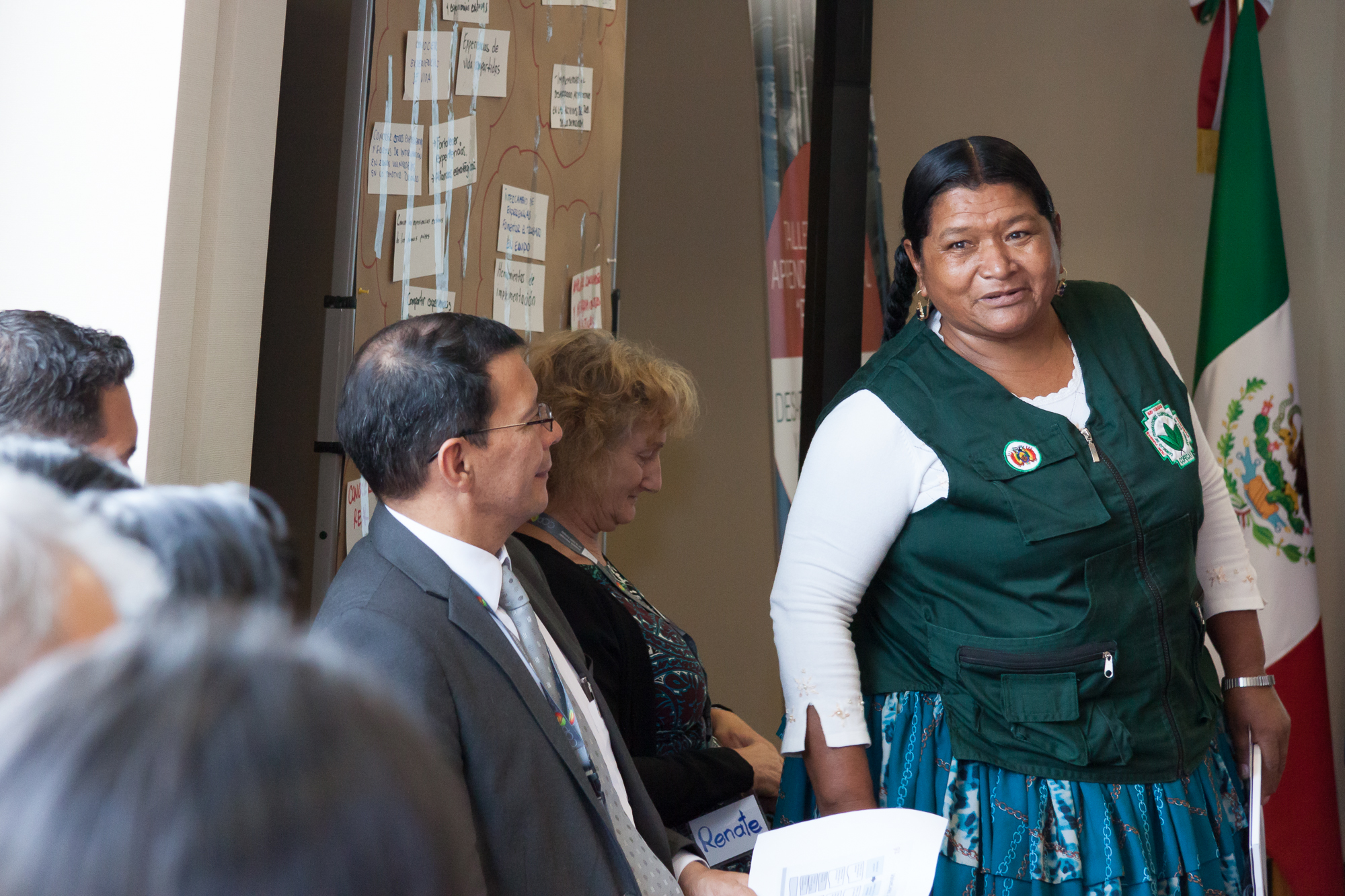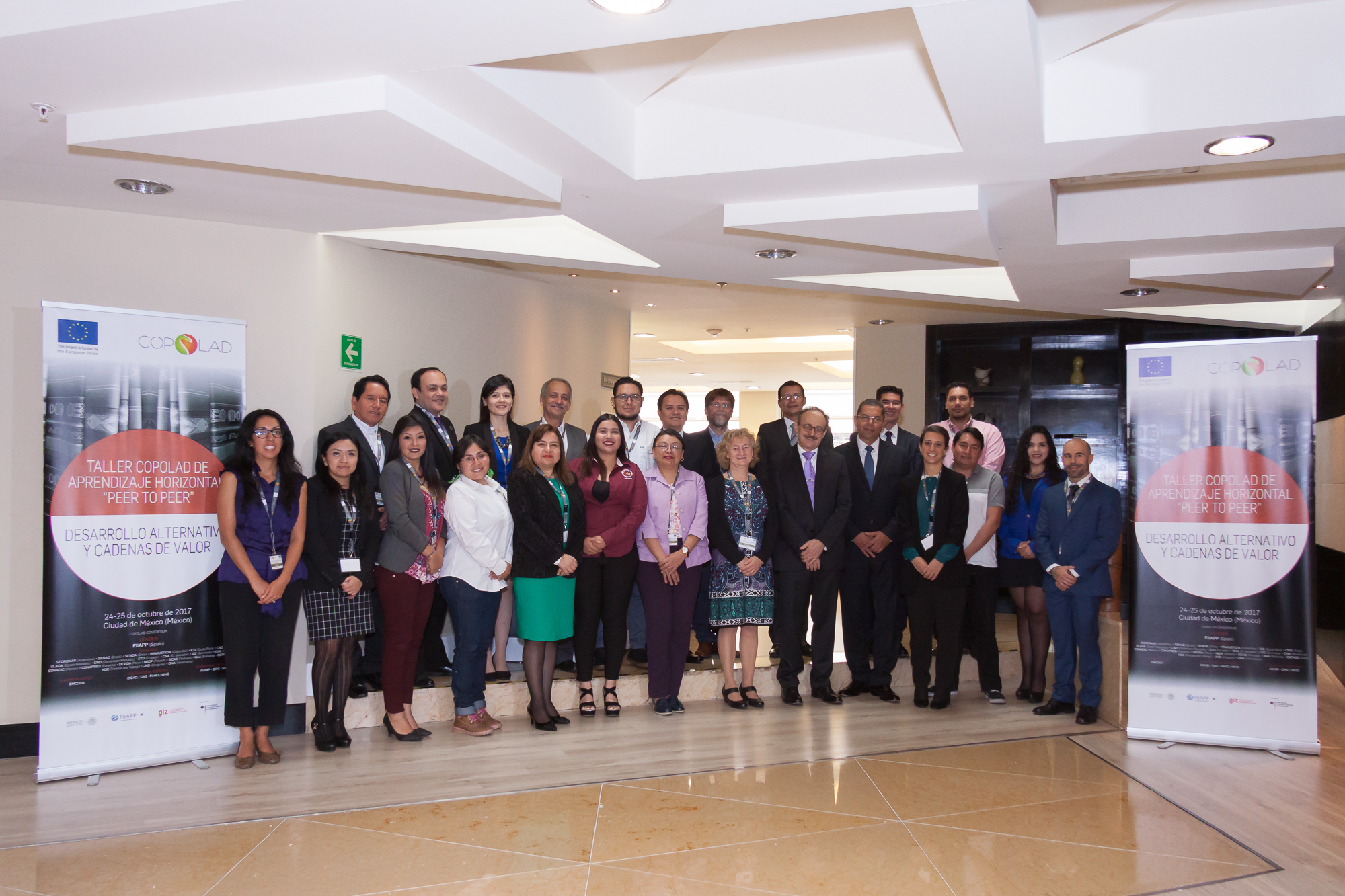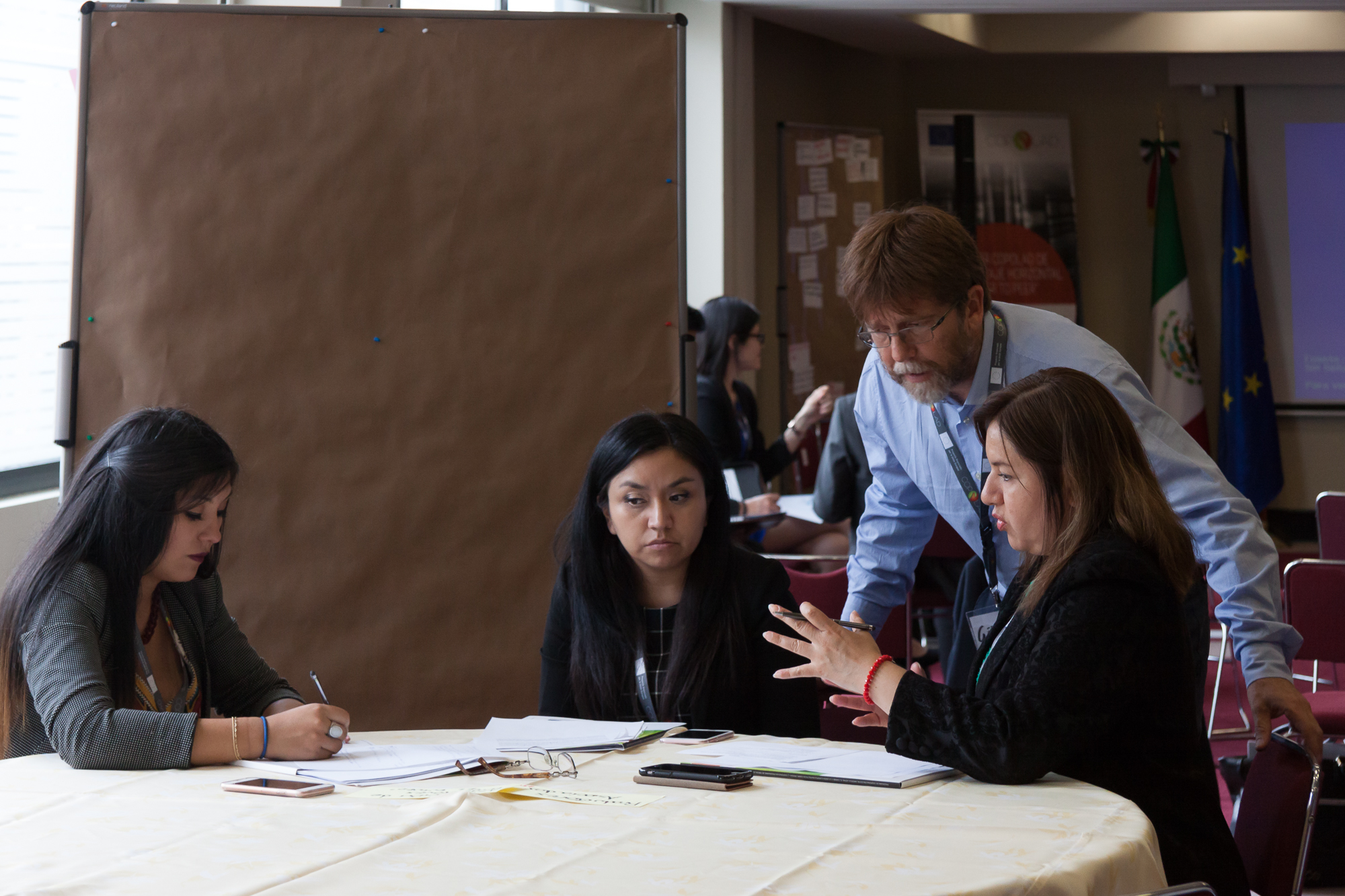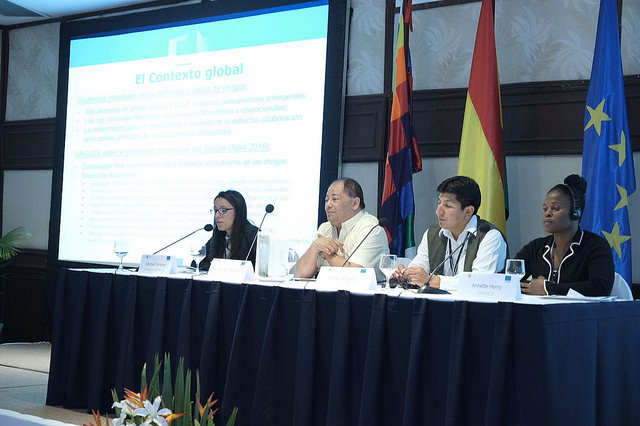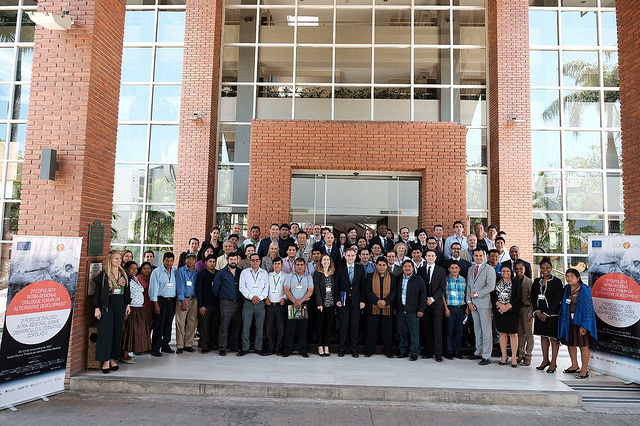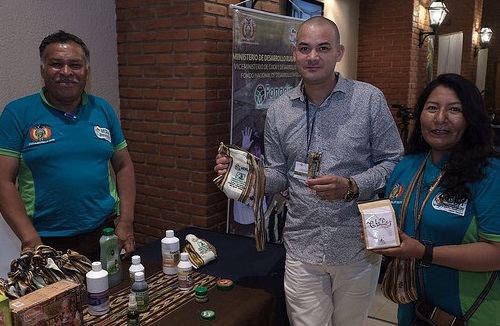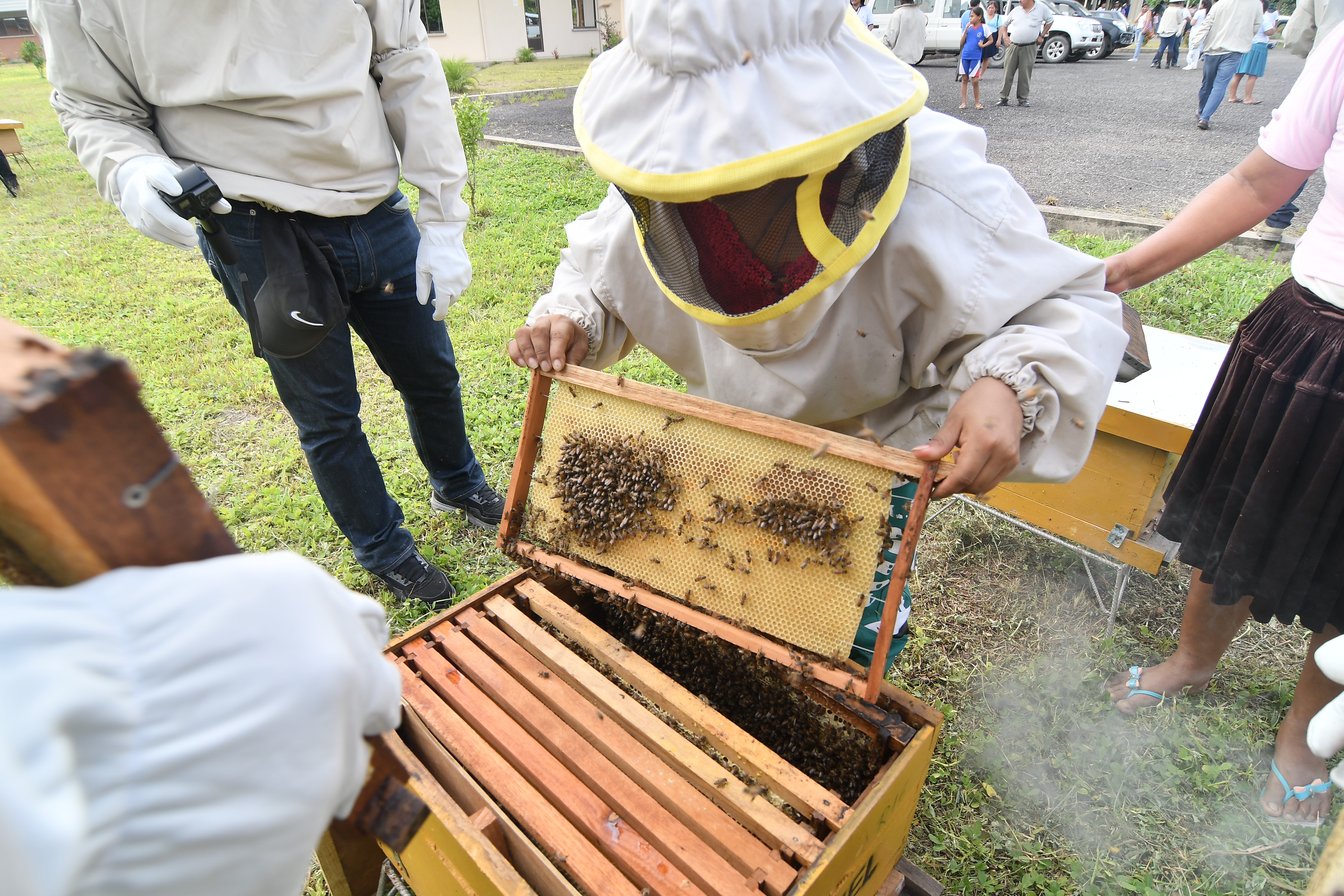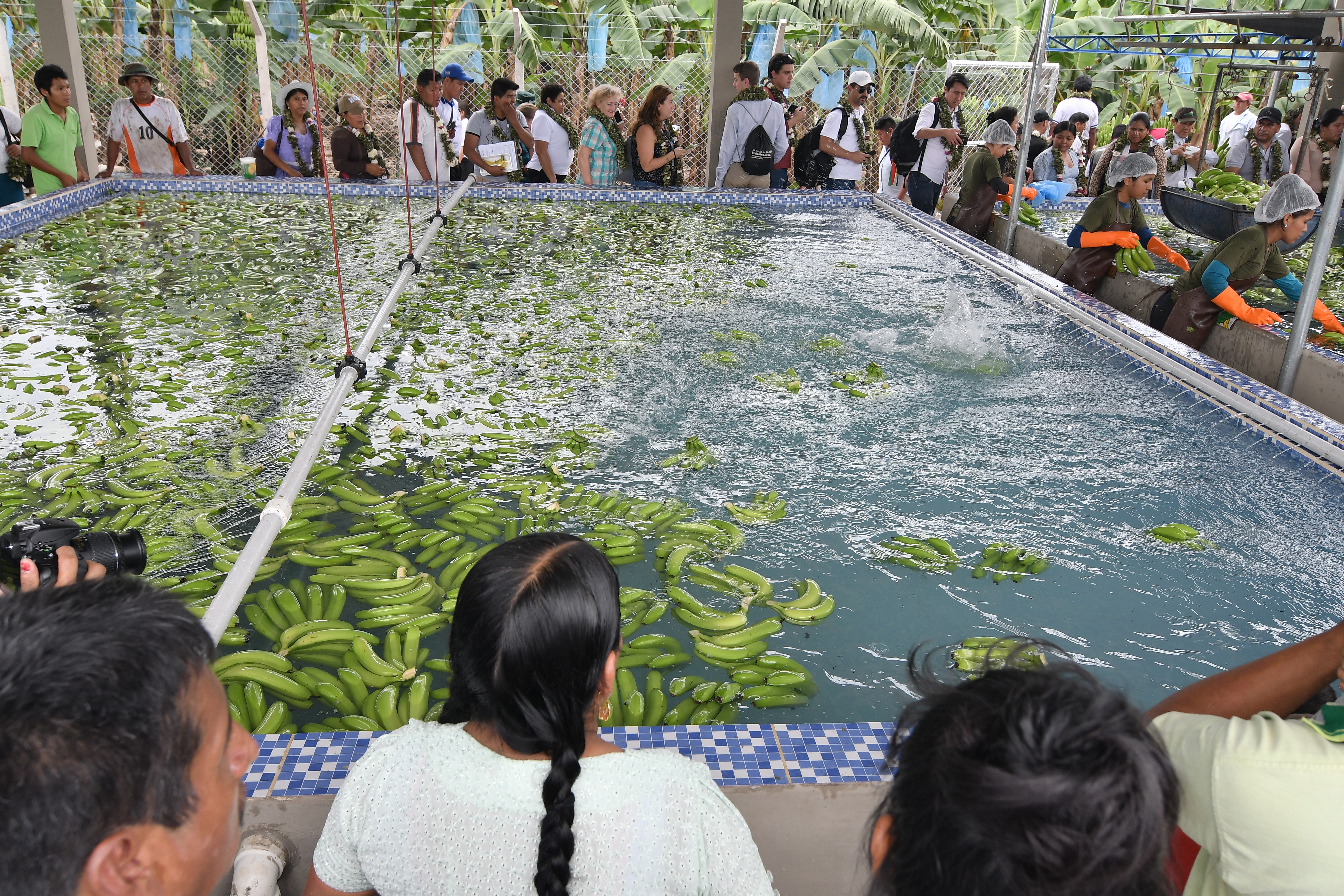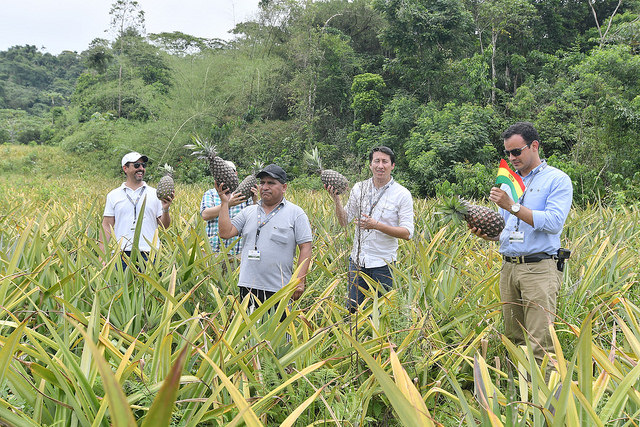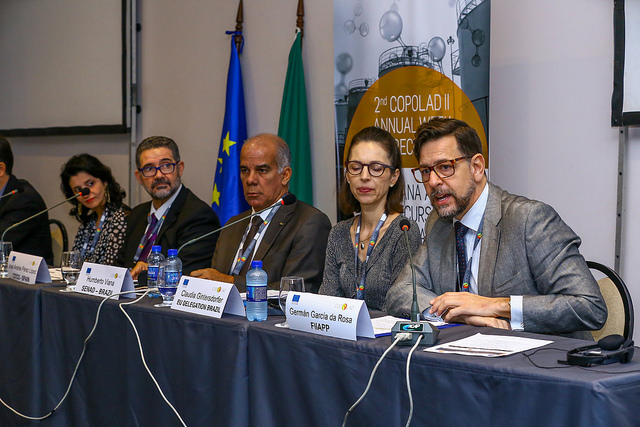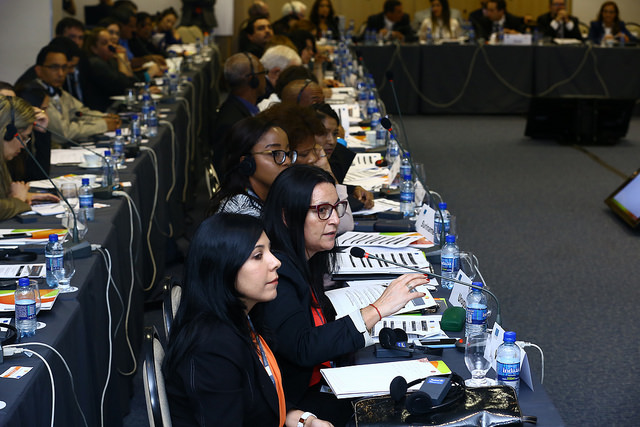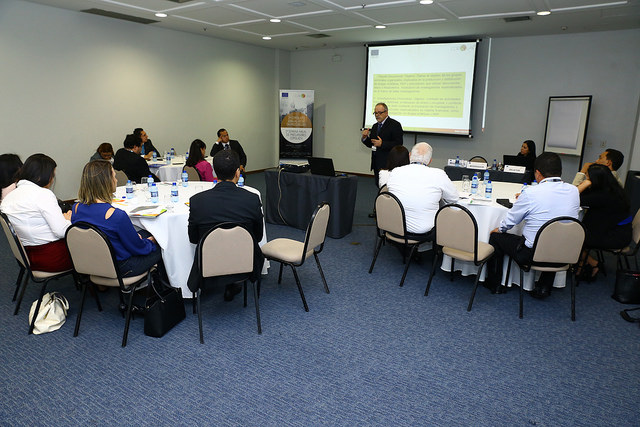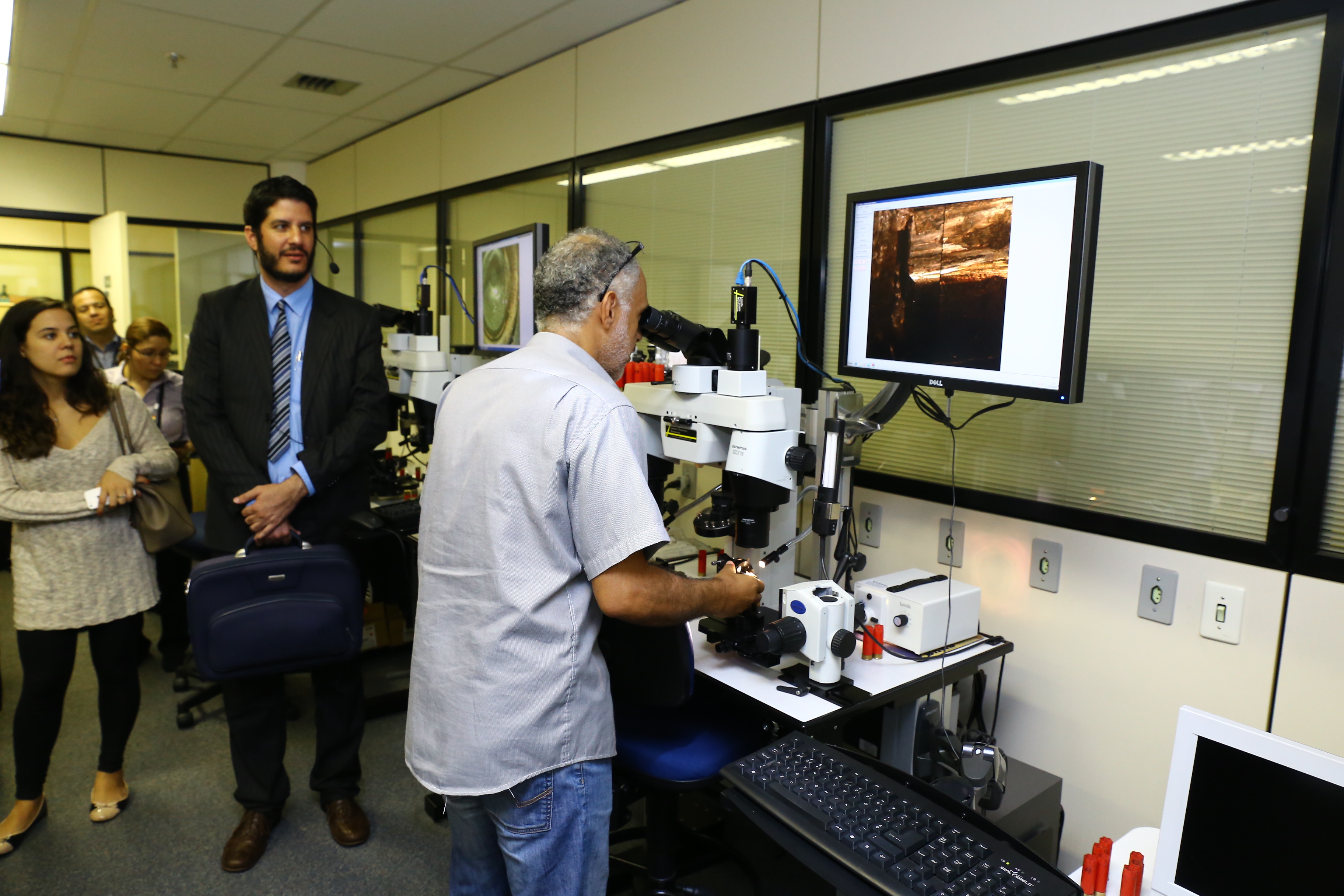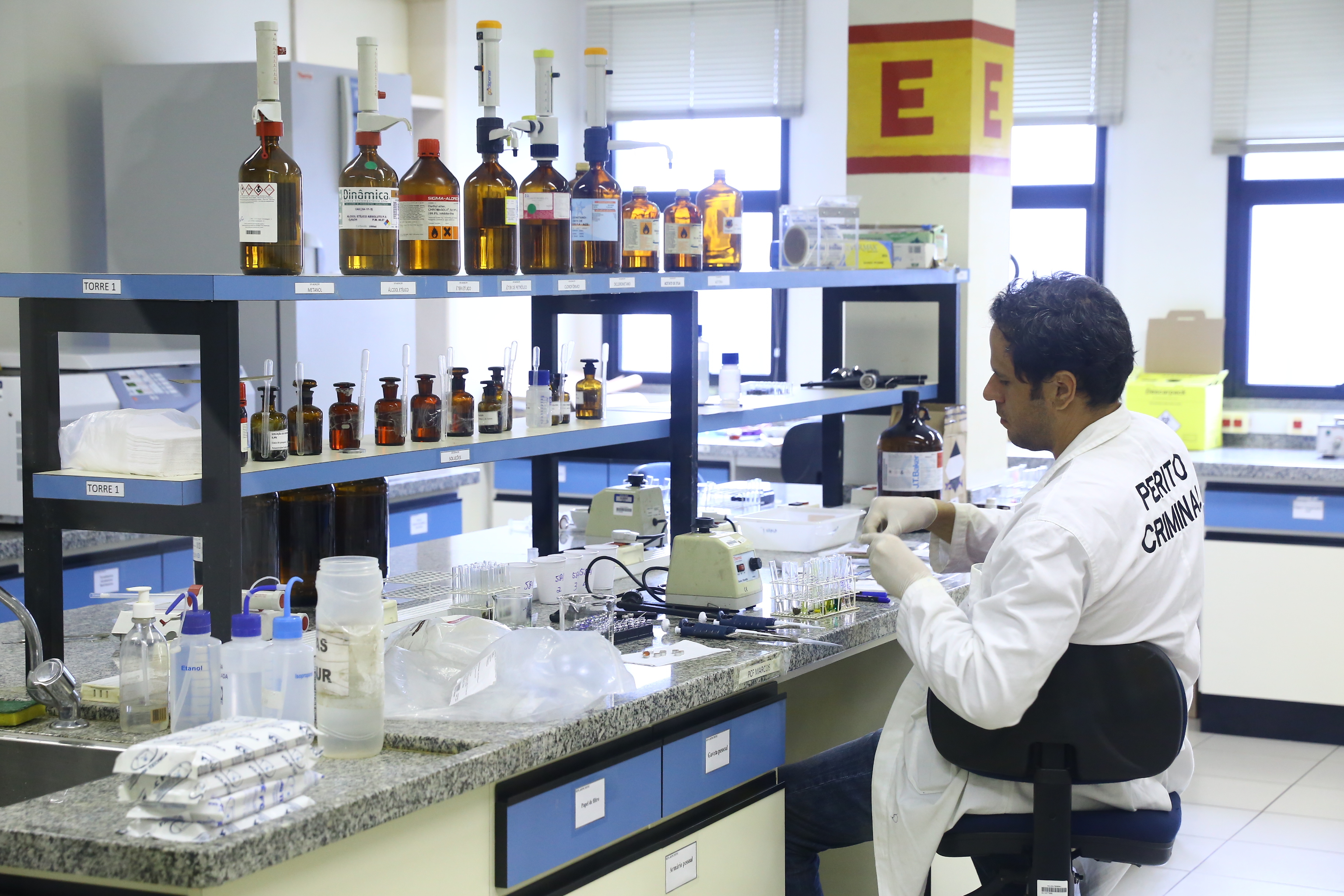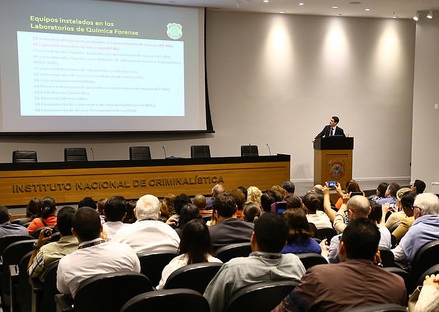Alternative Development (AD)
During 2017 we have been progressing in promoting the exchange of experiences, identifying lessons learned and working together on new approaches in the field of alternative and comprehensive development with representatives of public organisms and local organisations of countries participating in the programme.
In October, and answering to the demands of the participants, who showed interest on keeping permanently the training and on updating the methodologies for design public policies, along with the space building, in Mexico City (Mexico) COPOLAD held the third and last "Peer to peer" learning workshop in value chains and alternative development in collaboration with the Deutsche Gesellschaft für Internationale Zusammenarbeit (GIZ) GmbH of Germany and the Government of the Republic of Mexico, which have been hosts and collaborators of this event through the Secretary of External Relations (SRE), the Attorney General's Office (PGR) and the National Commission against Addictions (CONADIC).
This last meeting, attended by 35 participants, the series that started in Quito (Ecuador) last May and continued in September in Asunción (Paraguay) was completed. In total, more than 54 people were trained throughout the three workshops. Representatives and technicians from institutions and members of civil society, as well as associations of producers and farmers, have exchanged respectively good practices and guidelines, both in situ and through virtual training through the COPOLAD website, exploring key aspects to consider when dealing with projects with the Alternative Development (AD) perspective.
Thus, the collegial assistance provided and the facilitation of meeting points, have enabled participants from the seven countries (Colombia, Ecuador, Bolivia, Peru, Guatemala, Mexico, and Paraguay) who are working on this subject within the COPOLAD framework, to have a network of professional contacts and to both design their policies in this field and redefine the projects that are already being developed. Success stories such as the substitution of these crops by others from the agricultural or the fish farming sector were presented by the Andean countries to the representatives of countries that are now beginning to face this challenge. Cooperation between countries and the use of appropriate methodologies is key in the search for alternatives so that affected communities can find new resources and livelihoods.
Following these workshops, the practical tools of so-called value chains have been strengthened through the learning of concrete examples within the AD framework. As a fundamental part of the training, moderation skills for group events and training of trainers were promoted. All phases have been characterised by a practical and participatory approach, and in them, participants have been able to design support tools to use in real situations of their daily work and continue to develop their improvement strategies.
Later in November, 7 countries from Latin America and 4 from the Caribbean gathered in Bolivia during the second edition of the 2nd COPOLAD II Intra-Regional Dialogue Forum, led by the Plurinational State of Bolivia through the Coordination Secretariat of the National Council on the Fight against Illicit Drug Trafficking (SC-CONALTID), the Ministry of Rural Development and Land and the National Comprehensive Development Fund (FONADIN) supported by the Deutsche Gesellschaft für Internationale Zusammenarbeit (GIZ) GmbH .
Along with representatives of international institutions working on alternative and comprehensive development like CICAD-OAS and IDPC, representatives of organisations and associations of producers from Bolivia, Colombia, Ecuador, Guatemala, Jamaica, Mexico, Paraguay, Peru, Suriname, Trinidad y Tobago, deepened their understanding about the objectives of alternative development based on specific projects in thematic areas identified by the participants in the first Forum for Dialogue held in Bogota (Colombia) in December 2016.
This was the second edition of the Forums for Dialogue on Alternative Development organised by the COPOLAD Programme, which once again served as a platform promoting for dialogue, the exchange and implementation of best practices and how to integrate them to greater development objectives like the reduction of poverty, equitable sustainability, and the protection of the environment. Its last addition will take place in Peru from 27th February to 1st March 2018.
Reinforcement of the cooperation for the control of chemical precursors (CP) diversion to the production of illicit drugs
As scheduled, between 28th November and 1st December 2017, the 2nd Annual Week on Precursors was held in Brasilia, Brazil in the framework of COPOLAD. From the part of the hosting country, the organization was assumed by all the Brazilian actors relevant in this field: the National Sanitary Surveillance Agency (ANVISA), the Federal Police and the National Secretariat on Drugs Policies of Brazil (SENAD), all of them working in close cooperation with the Center for Intelligence against Terrorism and Organized Crime (CITCO) of the Ministry of the Interior (Spain), as leading country of COPOLAD.
This activity has put its focus of interest in sharing the experiences of the participating countries in the issue of new threats related with synthetic drugs, their new precursors and new psychoactive substances and counted with the participation of a total of 95 delegates, from countries in the different regions of the CELAC and also of international agencies. Participants included representatives of Latin American countries (Argentina, Bolivia, Brazil, Chile, Colombia, Costa Rica, Ecuador, El Salvador, Guatemala, Honduras, Mexico, Nicaragua, Panama, Paraguay, Peru, Uruguay and Venezuela); the Caribbean regions (Antigua and Barbuda, Barbados, Belize, Dominica, Dominican Republic, Jamaica, St. Kitts and Nevis, St. Lucia, St. Vincent and The Grenadines, Suriname and Trinidad and Tobago); and countries from the European Union (Spain, France, Poland, Portugal and Romania). The meeting counted with representatives from the European Delegation of the European Union in Brazil, the General Directorate of TAXUD (European Commission), the European External Action Service (EEAS) and the European Monitoring Centre for Drugs and Drug Addiction (EMCDDA), along with the Inter-American Drug Abuse Control Commission of in the Organization of American States (CICAD/OAS).
The agenda was developed through general plenaries and work in small groups, coming to important practical conclusions regarding highly relevant issues for the subject of precursors, such as the legislative aspects, seizures and other relevant affairs for law enforcement, the management of the toxic waste emanating in the manufacturing of illicit drugs and the seizure of the very precursors and, at last, the forensic techniques for the analysis of the chemical substances.
The meeting concluded with a guided visit to the forensics laboratory of the Federal Police of Brazil, where the delegates had the opportunity of seeing in situ one of the most advanced laboratories in Latin America, not only in what refers to precursors, but to forensics aspects in general.
In this 2nd Annual Week on Precursors, an invitation was extended to all interested delegates to register and participate in the Working Groups which are being organized in the field of precursors. The interested countries which has not yet sent their applications are very welcome to do so, sending their expression of interest to: tf.jcaraneda@copolad.eu


